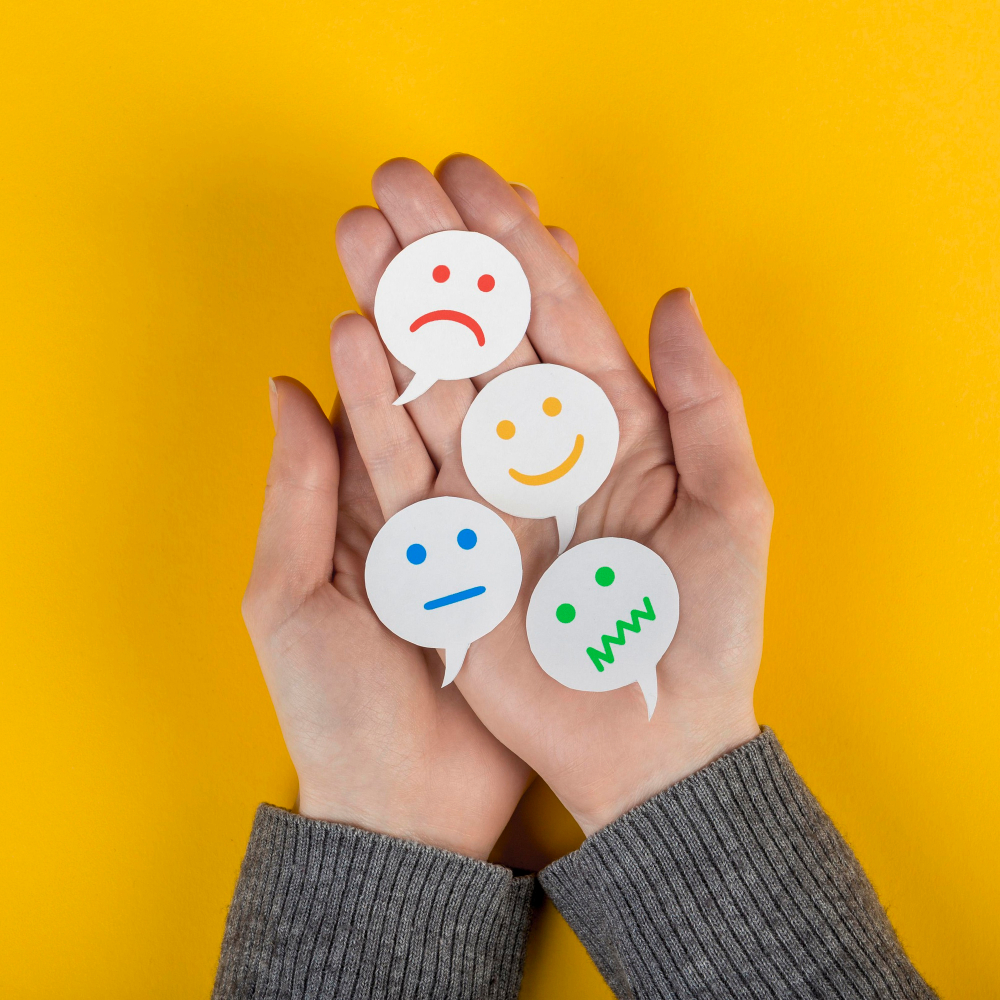
by Andi Daniel, Technology Coordinator
June 20, 2023
We most often hear about radical acceptance in the context of Dialectical Behavior Therapy (DBT) but the concept can be applied with other therapies as well. Part of radical acceptance is acknowledging our thoughts about ourselves even if we aren't in the right space to challenge those thoughts directly as with DBT or Cognitive Behavioral Therapy (CBT). For me, CBT and DBT are very difficult but I can take pieces of them and improve my mental health. That's not to say that I think CBT and DBT are ineffective therapies, they absolutely can be life-changing for many people, especially those who aren't consciously aware of where their thoughts and behaviors originated from. Often when we can identify why we behave or think in a specific way, it helps us to manage those behaviors and thoughts. After many years of therapy-both individual and group-I am aware of where my thoughts and behaviors come from, but that doesn't help me manage them. The DBT and CBT skills just aren't a good fit for me. Radical acceptance is difficult, but I have managed to apply it to some aspects of my life.
My major behavioral health crisis stemmed from the break up of my marriage. It wasn't something I wanted and I felt like I had failed as both a wife and mother. My emotional reaction to the break up was negatively affecting my children and I was unable to care for them which led to more feelings of failure. I received some inpatient care due to suicidal thoughts for about a week and it didn't change anything for me but they sent me home anyway. The thoughts continued and I had a psychiatric hold that changed things for me. The medical doctor on call told me about her break up and how she had been unable to care for her children for a period of time. That was the hope I needed-although the suicidal thoughts continued and I did attempt suicide about a month later-I was connected with a therapist who was willing to try new things with me.
 Some of the best tools that I learned in therapy were Emotion Focused Therapy combined with Emotional Freedom Techniques (both referred to as EFT). Emotion Focused Therapy allows us to experience our unpleasant emotions in a safe space and re-frame them in a way that makes them beneficial or at least not disruptive. We are guided to "sit with" our emotions and feel them as much as we possibly can while observing our thoughts and sensations. This can be a form of radical acceptance. There is no judgement placed on the validity of the emotion. The emotion exists, and we accept that it is there. We don't try to push it away or think our way out of it. We don't try to rationalize it although we may discover the origins of it if we are unaware of the origin before starting a session. Part of the reason I found this helpful was that I was given the opportunity to put my logical brain away for a bit. There was a time limit on how long I would have to sit with the emotions and it made them easier to process. I was often afraid that if I allowed myself to fully feel those emotions, I would be stuck in them and be back in the self-injury and suicidal ideation that had taken over my life for a while.
Some of the best tools that I learned in therapy were Emotion Focused Therapy combined with Emotional Freedom Techniques (both referred to as EFT). Emotion Focused Therapy allows us to experience our unpleasant emotions in a safe space and re-frame them in a way that makes them beneficial or at least not disruptive. We are guided to "sit with" our emotions and feel them as much as we possibly can while observing our thoughts and sensations. This can be a form of radical acceptance. There is no judgement placed on the validity of the emotion. The emotion exists, and we accept that it is there. We don't try to push it away or think our way out of it. We don't try to rationalize it although we may discover the origins of it if we are unaware of the origin before starting a session. Part of the reason I found this helpful was that I was given the opportunity to put my logical brain away for a bit. There was a time limit on how long I would have to sit with the emotions and it made them easier to process. I was often afraid that if I allowed myself to fully feel those emotions, I would be stuck in them and be back in the self-injury and suicidal ideation that had taken over my life for a while.
Using the other EFT, Emotional Freedom Techniques, I was able to incorporate radical acceptance. This therapy is sometimes referred to as tapping because it focuses on specific points on the body to tap on while repeating phrases. It helps rewire some of our thinking. My therapist would help me formulate those phrases that always ended with some version of "I totally and completely accept myself." This helped me acknowledge my feelings, thoughts, and behaviors without judgement and to process them in a different way. It also helped me manage my anxiety in the moment if I could just take a few minutes to focus and tap. It helped me be more comfortable at events for my kids, especially those in which I was likely to see my ex-husband.
It also gave me tools to manage the stress and anxiety of being a single parent and helped me talk to my children about their emotions in a nonjudgmental way. I was able to teach them some of the techniques I had learned. Some were helpful to them and others were not but those therapies changed me for the better by improving my mental health which improved my ability to care for my children.

